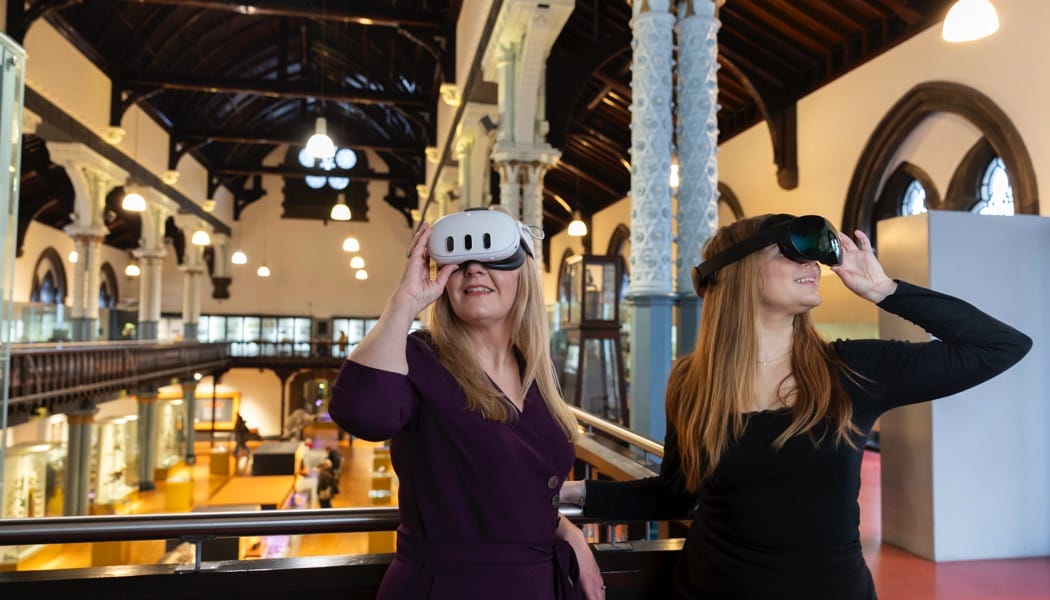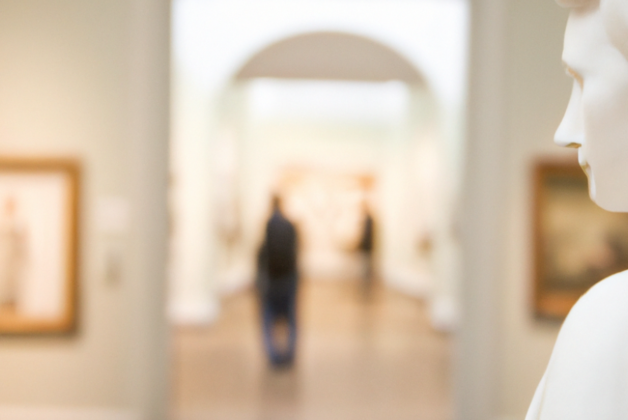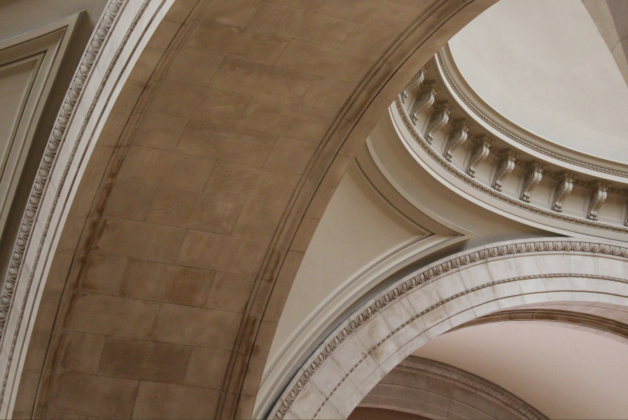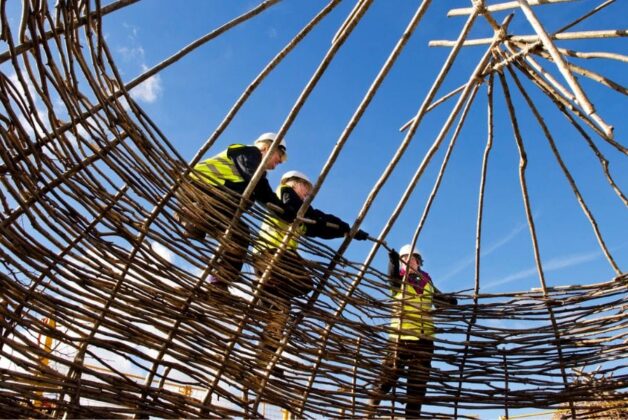Image:The University of Glasgow's Dr Pauline Mackay and Dr Lynn Verschuren visit The Hunterian
International survey of thousands suggests a majority of cultural heritage enthusiasts hold an interest in virtual experiences
The majority of the public are in favour of accessing museum collections virtually through VR and ‘extended reality’ technologies, accordinging to a new report.
The global survey of more than 2,000 participants, who were identified as ‘cultural heritage enthusiasts’, was conducted as part of the £5.6m Museums in the Metaverse (MiM) project, based at the University of Glasgow.
It reports that 79% of respondents expressed interest in using digital technology to explore cultural collections currently inaccessible to the public.
A combined 77% – definitely (52%) or probably (25%) – would be interested in using VR to access cultural heritage collections that are currently inaccessible to them.
There were elevated levels of both awareness of and engagement with VR technology by respondents. More than half (55%) reported being both aware of and having tried VR technology.
A combined 38% of respondents reported being ‘probably’ or ‘definitely’ willing to pay for virtual Cultural Heritage experiences.
University of Glasgow unveils Lord Kelvin ‘metaverse’ museum
Funded by UK Research and Innovation, as part of the Innovation Accelerator Programme, the MIM is developing its own XR platform for cultural heritage collections.
Professor Murray Pittock, co-author of the report, said: “Our research reveals a clear appetite for immersive digital experiences, with people eager to interact with cultural artifacts in new and exciting ways.”
The research includes real-world examples of VR success. The Paris’ Musée d’Orsay’s VR Impressionist experience drew 18,000 visitors in just five months, while Vienna’s Hofburg reported record visitor numbers in 2023, with 25 million people engaging with its physical and digital offerings.
When completed in March 2025, MiM will create a new XR platform which hopes to give visitors access to a virtual museums, sites, objects, and novel and dynamic experiences, and professionals in the sector the chance to build experiences with virtual objects and environments.
The £5.6 million Museums in the Metaverse project is funded by the UK Government’s Innovation Accelerator programme, led by Innovate UK on behalf of UK Research and Innovation.
The Museums in the Metaverse Audiences and Impact Report is available to view here.





